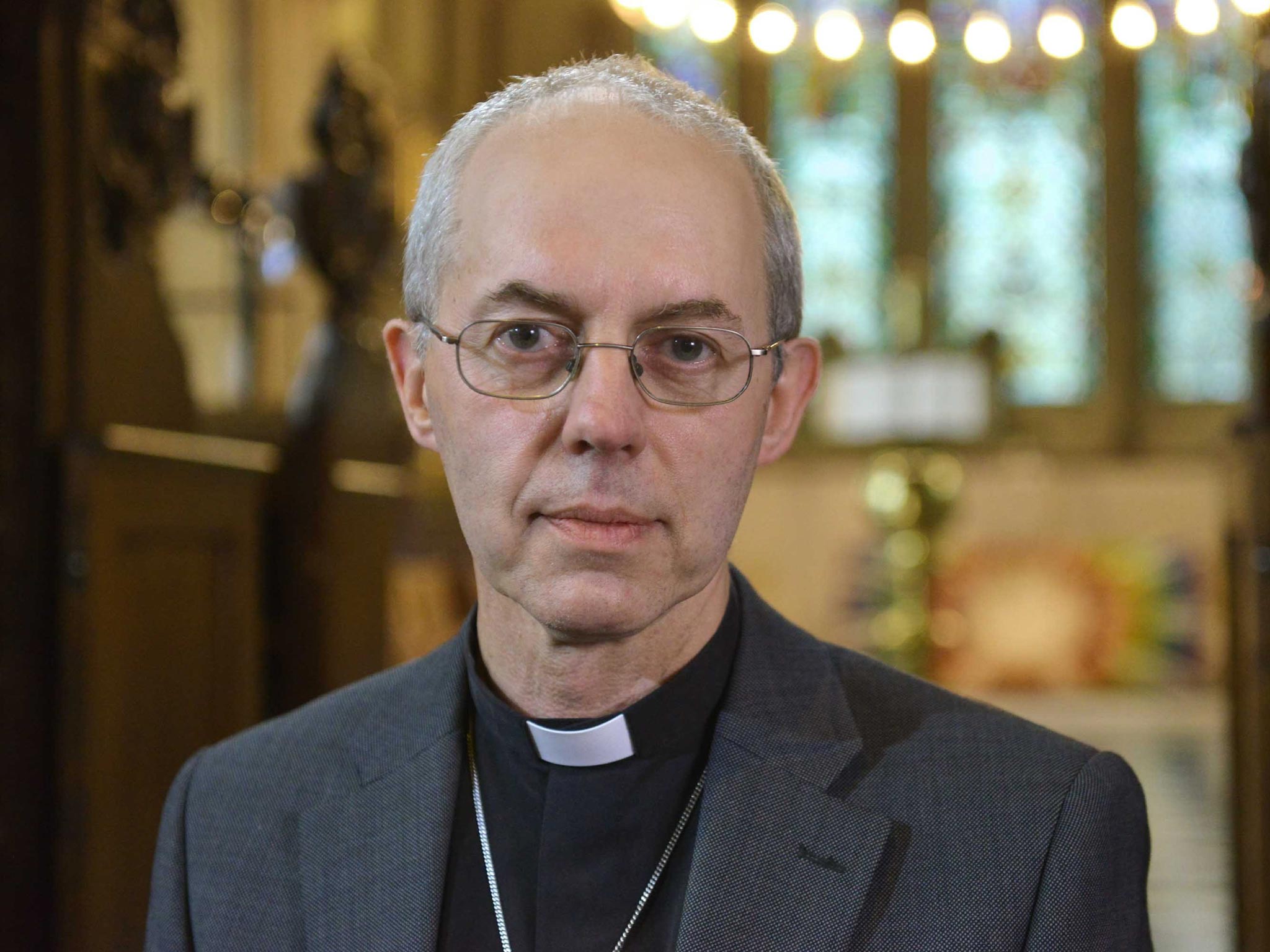Anglican archbishops accuse Coalition of abandoning poor amid culture of selfishness
New book criticises the 'rampant consumerism and individualism' that has dominated politics since the 1980s

The archbishops of Canterbury and York have launched a blistering attack on the Government, accusing the Coalition of abandoning Britain’s poorest people.
In a book published on Thursday, called On Rock or Sand?, they say the Christian values of solidarity and selflessness have been discarded in favour of “every person for themselves” with “rampant consumerism and individualism” dominating politics since the 1980s.
And they warn that party leaders are lying when they claim economic growth will lead to a better society, according to The Daily Telegraph. They describe the levels of inequality as “evil” and say it is a “sin” to value people based on their economic output.
In the book, Archbishop of Canterbury, Justin Welby, writes that “entire towns and regions” are now “trapped in an apparently inescapable economic downward spiral” that has been made worse by the Government’s austerity policies.
“Our economy appears to be, in one sense, a tale of two cities – one being a growing and constantly improving London (and the South East generally), and the other being most, but not all, other cities, alike in that they are each trapped in apparently inevitable decline,” he argues.
He criticises the “general social assumption” that the economy “has the power to dictate what is and is not possible for human beings”.
“We believe that if we can fix the economy, the fixing of human beings will automatically follow,” he says. “That is a lie. It is a lie because it is a narrative that casts money, rather than humanity, as the protagonist of God’s story.
“Our human journey is not a journey of individuals, it is a journey held in common, and no individual can safely be left behind. “The principle of the common good and human flourishing finds its foundation here. We really are all in it together.”
The book describes the welfare state as a way of fulfilling the Christian command to “love thy neighbour”.
It also quotes a slogan used by Karl Marx: “From each, according to his resources, to each, according to his need.”
In an interview with The Telegraph, Dr John Sentamu, the Archbishop of York, acknowledged: “That sounds extremely left wing doesn’t it? The truth is it is the theology of where I am coming from.
“If God has created us unique, [and] all of us have got his image and likeness, is it ever right that I should have more when somebody else has nothing?”
In the book, Dr Sentamu insists that the Church is “impelled” to campaign against poverty.
“Like the Old Testament prophets, I suggest, it is essential for religion to speak truth to power,” he writes.
Subscribe to Independent Premium to bookmark this article
Want to bookmark your favourite articles and stories to read or reference later? Start your Independent Premium subscription today.

Join our commenting forum
Join thought-provoking conversations, follow other Independent readers and see their replies